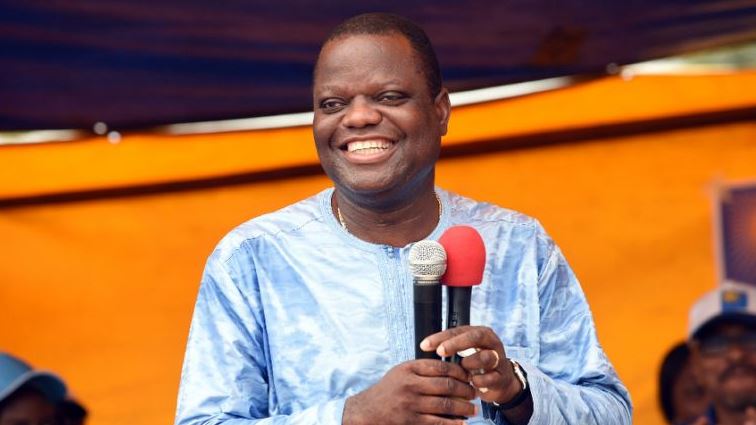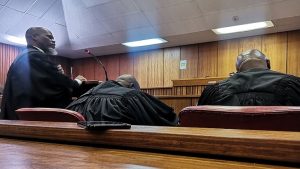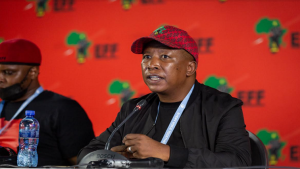Benin tycoon and opposition politician Sebastien Ajavon is facing trial for alleged drug trafficking despite being cleared of any involvement in the same case two years ago, leading to claims of a political witchhunt.
The former presidential candidate was not in court in the administrative capital, Porto Novo, on Thursday but was represented by 10 lawyers, who called the case a “blatant violation” of his rights.
The man dubbed Benin’s “Chicken King”, because he made his fortune in livestock, only found out about the legal action last week.
But he was not notified whether he would have to appear as a witness or a defendant, according to court documents seen by AFP.
It was only on Thursday that his lawyers discovered their client and three others were accused of “high-risk international drug trafficking”, which carries a prison term of 10-20 years.
“How can you summon the same people for the same events when they have already been tried and acquitted?” his Paris-based lawyer, Marc Bensimhon, asked after the hearing.
Double jeopardy — which prevents an accused person from being tried twice for the same offence — was “one of the foundations of law everywhere in the world”, he added.
“I can only imagine that Beninese politics dictates Beninese justice,” he told reporters.

Ajavon was arrested in October 2016 after some 18kg (40 pounds) of cocaine with an estimated street value of nine billion CFA francs ($15.7 million, 13.7 million euros) was found in a container heading to one of his businesses.
He was released several months later for lack of evidence and having been given “the benefit of the doubt”.
He believed the decision to be final as there was no appeal but the latest proceedings were begun at a new court that hears cases of economic crime, drug trafficking and terrorism in late August.
It can hear cases at both first instance and as a last resort.
After 20 minutes of legal argument, the court president decided to adjourn the hearing until October 18, and asked all defendants to attend.
Ajavon came third in the 2016 presidential election behind the former prime minister Lionel Zinsou and the eventual winner, Patrice Talon.
He also backed Talon — who made his money in cotton and running Cotonou’s port — in the second round against Zinsou. But relations have soured between the two men since then.
In May this year, he took Talon’s government to an African Union court in Arusha, Tanzania, to demand nearly $990 million in damages after a string of arrests and prosecutions.
They included the suspension for several months of two media organisations belonging to him and more recently a backdated tax bill of more than $300 million.
In March, Ajavon launched his own political party and has made known he wants to stand at the next election that is expected in 2021.
“You’d have to mean spirited to imagine that these proceedings aim to prevent a credible political opponent from standing,” another of his lawyers, Julien Bensimhon, said sarcastically.
A source close to the government strongly denied “any harassment” of Ajavon and described any implication of a link to politics as “pure fabrication”.
“Leading figures in the world of business and politics are used to having safe-conduct but they have to understand that the fight against impunity and corruption launched by President Talon in 2016 is unrelenting,” they added.
Political scientist Expedit Bofouni Ologou said the creation of the new court and the speed with which it has tackled the case against Ajavon was surprising.
Benin’s justice system is usually “slow and ponderous”, he added.
Action targeting a mainstream business figure “isn’t going to bring peace when many Beninese are going through hard times socially and economically”, he added.
In recent months, there have been a number of protests against what have been seen as pro-rich and oppressive government measures, including a ban on strikes and tax hikes.






